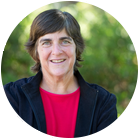Supporting wellness and wellbeing in our student population
Dear Stanford Engineering graduate students,

As many of you know, I’ve been writing to you on a monthly basis since the beginning of the school year. I have to say, some months go by quickly and others feel like forever. Am I the only one for whom time seems unusually elastic during the pandemic?
The past several months have been very difficult for everyone — students, postdocs, faculty, lecturers, and staff alike. And regardless of one’s political views, last week’s election has layered on additional tension and stress for many. As we work through our day-to-day challenges, we can take comfort in two things: (1) the commitment our community has demonstrated to learning, teaching, and conducting research relevant to urgent global challenges; (2) perhaps more importantly, the dedication our community has shown to taking care of one another.
I can’t tell you how many times over the past several months when I’ve been talking with faculty or staff, including many who are facing difficulties and complications of their own, they express concern for how our graduate students are doing. These conversations have highlighted what I’ve long known about the School of Engineering faculty and staff: they care deeply about your wellbeing, and I do too. I know you are also looking out for each other, and I thank you for that.
I do hope each of you is taking time to attend to your own physical and emotional health. For many of you that may mean daily exercise, spending time with members of your family household or “pod,” enjoying a hobby, or finding ways to connect socially with others, even if from a distance. (I’ve listed some Stanford community groups below.) I myself have doubled down on my own exercise regimen, which includes a walk every evening — now in the dark! My husband and I frequently pass through Rains and Escondido Village on our walking route and it’s always nice to see graduate students getting fresh air and engaging in a variety of COVID-safe activities.
As you probably know, the university is shutting down for three weeks around the winter holidays this year, instead of the normal two-week shutdown. Staff are in great need of a break, and I feel certain many of you are in need of one as well. Whether or not you are able to travel or spend time with loved ones, I hope you will consider unplugging and allowing yourself time to relax and refresh. I know it can feel difficult to approach your faculty advisor about taking a break, so I want you to know that I will be reminding faculty that graduate students really do need some time off.
I also know that some of you may need someone to talk to, or have acute or urgent needs. If you do, there are many resources available to you, including those listed below. Please make use of them if you need to, and as you do, know that the entire School of Engineering community is committed to your safety, health, and success.
Jennifer Widom
Health and Wellness Resources
- The Virtual Well-Being site offers a wide scope of resources available to you virtually, including coaching and counseling sessions.
- Well-Being at Stanford similarly provides a multitude of resources to keep you informed and empowered as you journey through the academic year.
- The Office for Religious Life can be a support when dealing with grief and loss — and it’s not just for students who identify as religious.
Social Connection Resources
- Asian American Activities Center (A3C) builds a community of Asian and Asian American students, faculty, staff and alumni that fosters greater understanding and awareness of the Asian experience in America.
- Bechtel International Center (Bechtel) supports the international student community, assisting with legal status, scholarships abroad, and nurturing cross-cultural relationships.
- Black Community Services Center (BCSC) focuses on supporting the total advancement and excellence of Black students and Black student groups within the Stanford community.
- El Centro Chicano y Latino (El Centro) works to support Chicano and Latino students academically, personally, socially and culturally.
- Hillel at Stanford (Hillel) empowers Jewish students at Stanford to explore and deepen their Jewish identities, and to envision their futures with choices inspired by Jewish values and commitments.
- Office for Inclusion, Belonging and Intergroup Communication (IBIC) provides campus leadership for students, faculty and staff to consciously and actively affirm intersectional identities and foster intergroup relationships. Resources include experiential workshops, conflict navigation, staff training, and inclusion consulting.
- Markaz Resource Center (The Markaz) supports a vibrant community of students who identify with or are interested in Muslim experiences both here and around the world.
- Native American Cultural Center (NACC) works to improve the quality of life for American Indians, Alaska Natives, Native Hawaiians and Indigenous Pacific Islanders. Our community reaches out to new students and their families to help them adjust to life at Stanford, and to help them realize goals and prepare for the future.
- Queer Student Resources (QSR) is a community of students, university staff, and faculty working to make Stanford a place where people of all genders and sexualities can flourish.
- First-Gen and/or Low Income (FLI) Office connects first-generation and/or low-income (FLI) students to resources, builds community and fosters a sense of belonging through mentorship and advocacy.
- Women’s Community Center (WCC) exists to facilitate growth and engagement for Stanford students around issues of gender, equity, identity, and justice.


